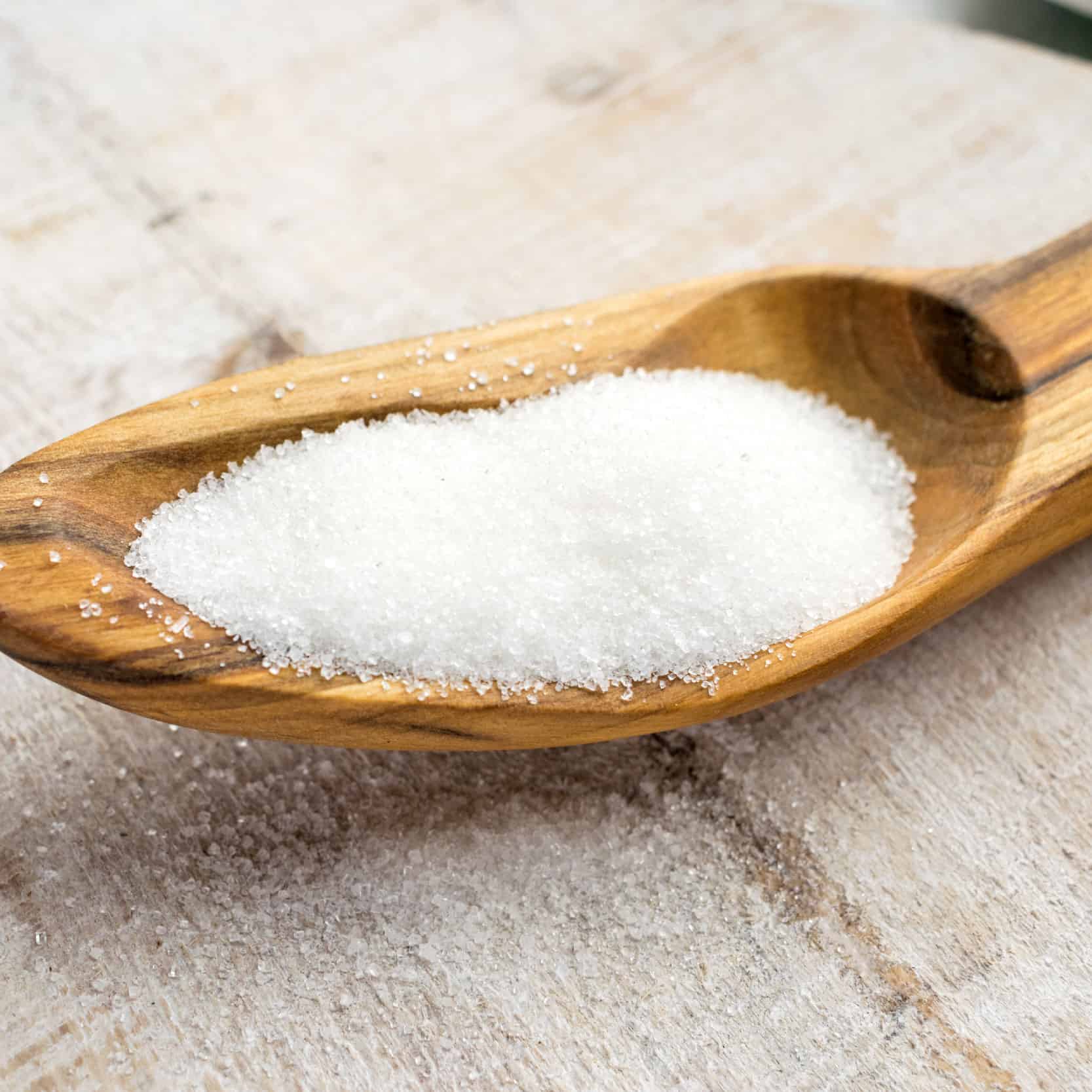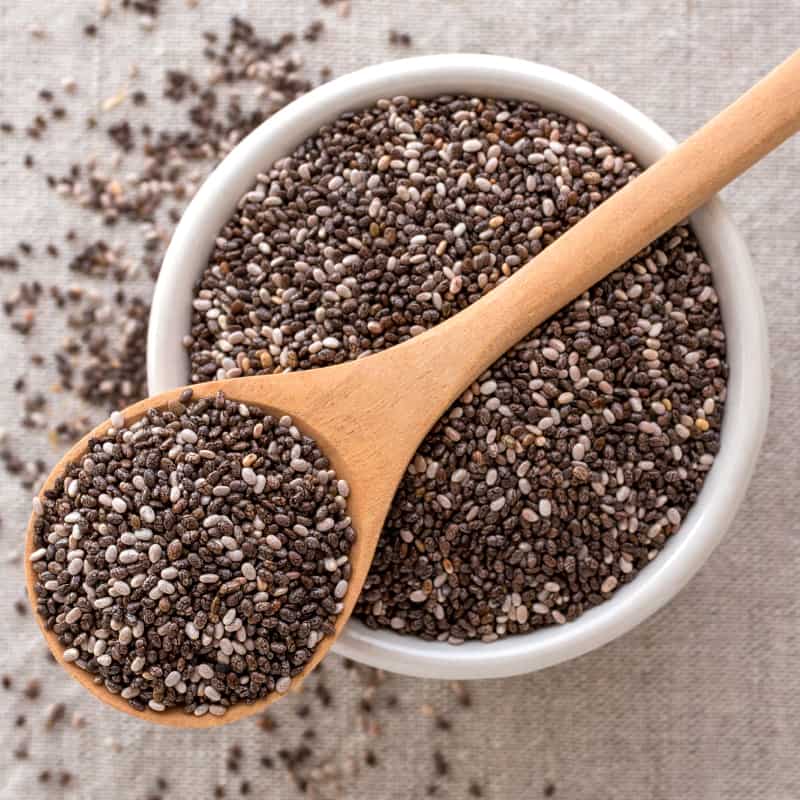This Dr. Axe content is medically reviewed or fact checked to ensure factually accurate information.
With strict editorial sourcing guidelines, we only link to academic research institutions, reputable media sites and, when research is available, medically peer-reviewed studies. Note that the numbers in parentheses (1, 2, etc.) are clickable links to these studies.
The information in our articles is NOT intended to replace a one-on-one relationship with a qualified health care professional and is not intended as medical advice.
This article is based on scientific evidence, written by experts and fact checked by our trained editorial staff. Note that the numbers in parentheses (1, 2, etc.) are clickable links to medically peer-reviewed studies.
Our team includes licensed nutritionists and dietitians, certified health education specialists, as well as certified strength and conditioning specialists, personal trainers and corrective exercise specialists. Our team aims to be not only thorough with its research, but also objective and unbiased.
The information in our articles is NOT intended to replace a one-on-one relationship with a qualified health care professional and is not intended as medical advice.
Mediterranean Diet Benefits (Plus How to Follow It)
July 13, 2023

Not only is the Mediterranean diet a tasty way to eat, drink and live, but it’s also a realistic and sustainable way to reduce disease-causing inflammation and maintain a healthy weight. In fact, U.S. News named the Mediterranean Diet the best overall diet among different 41 diets.
For thousands of years, people living along the Mediterranean Sea have indulged in a high-fiber diet of fruits and vegetables, along with legumes, whole grains, olive oil, fish and herbs. This healthy eating pattern has earned a reputation for disease prevention, mood enhancement, “enjoyable” weight manageable and even more.
In fact, research published in March 2023 even found evidence that following a Mediterranean diet can reduce signs of Alzheimer’s in brain tissue.
What Is the Mediterranean Diet?
The Mediterranean diet is a healthy eating plan based on the historic eating and social patterns of people living near the Mediterranean Sea, including those who reside in southern Italy, Greece, Turkey and Spain. It’s not even really a “diet” in the way we usually think of it, but more like a lifelong way of eating and living.
Considered by many nutrition experts to be one of the healthiest ways to eat, the base of the Mediterranean diet is loaded with anti-inflammatory foods and built upon plant-based ingredients and healthy fats.
This diet emphasizes fresh fruits, vegetables, lean proteins like fish, whole grains, beans and healthy fats like olive oil (along with the occasional glass of wine).
Many studies have found that people following a Mediterranean-type diet are less likely to die of heart attacks, cardiovascular disease, stroke, dementia and early death. It also seems to protect against depression, obesity, metabolic syndrome, type 2 diabetes and certain types of cancer.
The best part is, even with all of these benefits, it still provides the opportunity for people to “eat, drink and be merry.”
Related: The Okinawa Diet: Foods + Habits that Boost Longevity
Benefits
According to the Harvard School of Public Health,”Together with regular physical activity and not smoking, our analyses suggests that over 80 percent of coronary heart disease, 70 percent of stroke, and 90 percent of type 2 diabetes can be avoided by healthy food choices that are consistent with the traditional Mediterranean diet.”
Here’s more about how this type can extend longevity and live to a happy, healthy life:
1. Low in Processed Foods and Sugar
The Mediterranean diet primarily consists of foods and ingredients that are very close to nature, such as:
- beans and legumes, like peas
- fruits
- vegetables
- unrefined grains
- small portions of animal products (that are almost always “organic” and locally produced)
In contrast to the typical American diet, it’s very low in sugar and practically free of all GMOs or artificial ingredients, like high fructose corn syrup, preservatives and flavor enhancers. For something sweet, people in the Mediterranean enjoy fruit or small quantities of homemade desserts made with natural sweeteners like honey.
Beyond plant foods, another major staple of the diet is locally caught fish and a moderate consumption of cow, goat or sheep cheeses and yogurts. Fish like sardines and anchovies are a central part of the diet, which usually is traditionally lower in meat products than many Western diets today.
2. Emphasizes Plant Proteins
While most people in the Mediterranean aren’t vegetarians, the diet promotes only a small consumption of meats (especially red meat) — instead emphasizing beans, legumes and grains, plus seafood and dairy in moderate amounts. This can be beneficial for those looking to lose weight and improve things such as their cholesterol, heart health and omega-3 fatty acid intake.
3. Can Help With Weight Loss/Maintenance
Can you lose weight on Mediterranean diet? While it depends on how much you eat, it can certainly help you manage your weight and reduce your calorie intake due to inclusion of mostly nutrient-dense foods. (Learn “how many calories should I eat a day?”)
If you’re looking to lose weight without being hungry and maintain that weight in a realistic way that can last a lifetime, this might be the plan for you.
There’s room for interpretation in the Mediterranean diet, whether you prefer to eat less carbs, lower protein amounts or somewhere in between.
Fish, legumes, dairy products and grass-fed/free-range meats contain protein and healthy fats that your body needs. This helps you feel full.
This diet also helps control blood sugar levels and can improve your mood and energy levels.
4. Filling and Reduces Hunger
According to the American Heart Association, the Mediterranean diet is higher in fat than the standard American diet, yet lower in saturated fat. It’s usually roughly a ratio of 40 percent complex carbohydrates, 30 percent to 40 percent healthy fats and 20 percent to 30 percent quality protein foods.
This balance is ideal in terms of keeping weight gain and hunger under control.
5. Improves Heart Health
Research shows that greater adherence to the traditional Mediterranean diet, including plenty of monounsaturated fats and omega-3 foods, is associated with a significant reduction in all-cause mortality, especially heart disease.
A striking protective effect of a Mediterranean diet rich in alpha-linolenic acid (ALA) from olive oil has been shown in many studies. Some find that a Mediterranean-style diet can decrease the risk of cardiac death by 30 percent and sudden cardiac death by 45 percent, while another study found that it can naturally lower blood pressure.
Olive oil is also beneficial for lowering hypertension because it makes nitric oxide more bioavailable, which makes it better able to keep arteries dilated and clear. Another protective element is that it helps combat the disease-promoting effects of oxidation and improves endothelial function.
6. May Help Fight Cancer
According to an article published in the European Journal of Cancer Prevention:
The biological mechanisms for cancer prevention associated with the Mediterranean diet have been related to the favorable effect of a balanced ratio of omega-6 and omega-3 essential fatty acids and high amounts of fiber, antioxidants and polyphenols found in fruit, vegetables, olive oil and wine.
A plant-based diet, one that includes lots of fruits and vegetables, is the cornerstone of the Mediterranean diet, which can help fight cancer in nearly every way — providing antioxidants, protecting DNA from damage, stopping cell mutation, modulating hormone production and growth factors, lowering inflammation, and delaying tumor growth.
7. Prevents or Helps Treat Type 2 Diabetes
Evidence suggests that the Mediterranean diet has anti-inflammatory effects that could help fight diseases related to chronic inflammation, including metabolic syndrome and type 2 diabetes.
One reason the Mediterranean diet might be so beneficial for preventing diabetes is because it controls excess insulin, a hormone that controls blood sugar levels and weight. A low-sugar diet with plenty of fresh produce and fats is part of a natural diabetic diet plan.
The Mediterranean diet is low in sugar, since the only sugar present usually comes from fruit, wine and the occasional locally made dessert. When it comes to drinks, many people drink plenty of fresh water, some coffee and red wine, too, but soda and sweetened drinks aren’t nearly as popular as they are in the U.S.
While some Mediterranean diets do include a good deal of carbohydrates — in the form of pasta or bread, for example — being active and otherwise consuming very low levels of sugar means that insulin resistance remains rare in these countries.
8. Protects Cognitive Health
Eating the Mediterranean way might be a natural Parkinson’s disease treatment, a great way to preserve your memory, and a step in the right direction for naturally treating Alzheimer’s disease (AD) and dementia.
Healthy fats like olive oil and nuts, plus plenty of anti-inflammatory veggies and fruits, are known to fight age-related cognitive decline. These help counter the harmful effects of exposure to toxicity, free radicals, inflammation-causing poor diets and food allergies, which can all contribute to impaired brain function.
That’s not all. A 2023 study published by the American Academy of Neurology examined how diet affects Alzheimer’s and dementia symptoms, specifically looking at the effects the Mediterranean and MIND diets on Alzheimer’s symptoms. Researchers did this by analyzing postmortem brain tissue of older adults for deceased people with dietary information collected through a food frequency questionnaire.
They concluded: “The MIND and Mediterranean diets are associated with less postmortem AD pathology, primarily beta-amyloid load. Among dietary components, green leafy vegetables inversely correlate with AD pathology.”
Or, as CNN put it: “People who consumed foods from the plant-based Mediterranean and brain-focused MIND diets had fewer of the hallmark signs of Alzheimer’s — sticky beta-amyloid plaques and tau tangles in the brain — when autopsied, a new study found.”
Another 2023 study found similar results. Using data from more than 60,000 participants, it found that people who followed a Mediterranean diet the most strictly had a 23 percent lower risk of developing dementia compared to people who followed the diet the least.
9. Supports Gut Health
Plenty of fiber, plus probiotic foods like yogurt and kefir, help build a healthy gut, which we now know is tied to better immune function, cognitive function and mental health.
A 2020 study found that when adults followed a Mediterranean-type diet, they experienced modulations in gut microbiota, which in turn reduced inflammatory markers and had the potential to promote healthier aging. Adherence to the Mediterranean diet led to increased abundance of specific microbes that are associated with improved cognitive function and negatively associated with inflammatory markers, including C-reactive protein and interleukin-17.
Microbiome changes were also associated with an increase in short/branch-chained fatty acid production and lower production of secondary bile acids, p-cresols, ethanol and carbon dioxide, which are thought to promote general health.
10. Might Help You Live Longer
A diet high in fresh plant foods with moderate amounts of fish seems to be a winning combination for longevity. Over and over, studies show that this type of diet is associated with lower levels of oxidative stress, heart disease, cancer, depression, cognitive decline and Alzheimer’s disease, inflammatory diseases, and more. These are currently the leading causes of death in developed nations — especially heart disease.
In the famous Lyon Diet Heart Study, people who had heart attacks between 1988 and 1992 were either counseled to follow the standard post-heart attack diet advice, which reduces saturated fat greatly, or told to follow a Mediterranean style. After about four years, follow-up results showed that people on the Mediterranean diet experienced 70 percent less heart disease — which is about three times the reduction in risk achieved by most cholesterol-lowering prescription station drugs!
The people on the Mediterranean diet also amazingly experienced a 45 percent lower risk of all-cause death than the group on the standard low-fat diet.
Another study published in the BMJ journal Heart found that women with the highest adherence to a Mediterranean diet had lower cardiovascular disease, total mortality, coronary heart disease and stroke incidence.
11. Helps You De-stress and Relax
The Mediterranean way of living encourages people to spend time in nature, get good sleep and come together to bond over a home-cooked, healthy meal. These are great ways to relieve stress.
Generally, people in these regions prioritize their mental health by spending a lot of time outdoors in nature; eating food surrounded by family and friends (rather than alone or on-the-go); and put aside time to laugh, dance, garden and practice hobbies.
We all know that chronic stress can kill your quality your life along with your weight and health. Those who practice the diet have the luxury of leisurely dining at a slow pace, eating local delicious foods almost every day and engaging in regular physical activity.
In addition, the history of the Mediterranean diet includes a love for and fascination with wine — especially red wine, which is considered beneficial and protective in moderation. For instance, red wine may help fight obesity, among other benefits.
12. Can Help Fight Depression
A 2018 study published in the journal Molecular Psychiatry found evidence that this type of diet can reduce the risk for depression.
Researchers involved in the study investigated the mental health effects of adherence to a range of diets — including the Mediterranean diet, the Healthy Eating Index, the Dietary Approaches to Stop Hypertension diet (DASH diet) and the Dietary Inflammatory Index. They found that the risk of depression was reduced the most when people followed a traditional Mediterranean diet and overall ate a variety of anti-inflammatory foods.
A nutrient-dense diet seems to help directly protect parts of the brain from inflammation, while other dietary/lifestyle changes like getting good sleep, having a mindful approach to meals, planning meals ahead of time and limiting stress can also lead to a calmer mindset.
Related: Top 12 Cancer-Fighting Foods
Foods
What are the main foods in a Mediterranean diet? To sum it up, the Mediterranean way of eating promotes foods including:
- fresh fruits and vegetables (especially leafy greens like spinach and kale and non-starchy veggies like eggplant, cauliflower, artichokes, tomatoes and fennel)
- olive oil
- nuts and seeds (like almonds and sesame seeds used to make tahini)
- legumes and beans (especially lentils and chickpeas used to make hummus)
- herbs and spices (like oregano, rosemary and parsley)
- whole grains
- wild-caught fish and seafood at least twice a week (which provide omega-3 fatty acids)
- moderate amounts of high-quality, pasture-raised poultry, eggs, cheese, goat milk, and probiotic-rich kefir or yogurt consumed in moderation
- red meat consumed on special occasions or about once weekly
- plenty of fresh water and some coffee or tea
- oftentimes a daily glass of red wine
Importance of Olive Oil:
Olives themselves are an ancient food, and olive trees have been growing around the Mediterranean region since about 3000 B.C.
What makes it so good for you? Olive oil is mainly made up of monounsaturated fatty acids (MUFAs), the most important of which is called oleic acid.
Diets high in MUFAS can help lower LDL “bad” cholesterol, raise HDL “good” cholesterol and lower triglycerides.
Olives are also high in compounds called phenols, which are potent antioxidants capable of lowering inflammation and fighting free radical damage.
How much olive oil should you consume daily? Evidence suggests that eating about two tablespoons (23 grams) of olive oil daily may reduce the risk of coronary heart disease due to the monounsaturated fat in olive oil.
To achieve this possible benefit, olive oil is to replace a similar amount of saturated fat and not increase the total number of calories you eat in a day.
Look for labels that indicate your oil is “extra-virgin” and ideally cold-pressed.
Related: Why You Should Try the Green Mediterranean Diet Plan (Benefits, Recipes & More)
Meal Plan (Plus Foods to Avoid)
Most people in the Mediterranean eat a balanced breakfast within several hours of waking up, then typically eat two more meals a day that are filling, with plenty of fiber and healthy fats.
Many people choose to have their biggest meal mid-day as opposed to at night, which gives them the opportunity to use that food for energy while they’re still active.
You can see how this differs from the standard American diet, which often results in many people skipping breakfast, snacking throughout the day on energy-zapping foods high in carbs and sugar, and eating a lot at nighttime while they’re sedentary.
Here’s an example of what a day would be like if you followed a Mediterranean diet meal plan:
Breakfast:
What do Mediterraneans eat for breakfast? Popular choices include:
- yogurt with fruit
- oatmeal or other whole grains with milk and honey
- eggs with vegetables
- whole grain bread with cheese, fruit and jam
Lunch:
Lunch almost always includes some veggies and protein. Here are some ideas:
- Minestrone or bean soup with bread
- Salad with vegetables, nuts/seeds, cheese and pita (with Greek tzatziki sauce)
- Fish with veggies and piece of fruit
- Hummus and pita with grilled veggies, yogurt sauce and olive oil
Dinner:
Dinners are similar to lunches and can include:
- Small portion of meat with sautéed veggies and salad (a glass of wine may be included)
- Fish or seafood served with whole grains, herbs and veggies
What foods are not allowed on the Mediterranean diet?
Processed foods, especially those that are ultra-processed, are limited or avoided. These include foods with added sugar, hydrogenated fats or margarine, additives and flavors, and GMO ingredients.
Red meat and processed meats are generally limited and eaten in small to moderate amounts.
Related: What Is the Climatarian Diet? Benefits, Meal Plan & More
Recipes
Here are some simple Mediterranean diet recipes for including more fruits, vegetables, fish, legumes, herbs and quality proteins in your diet:
- Zucchini Noodles with Marinara Sauce Recipe
- Minestrone Soup Recipe
- Hummus Recipe
- Goat Cheese and Artichoke Dip Recipe
- Fish Recipes
Other Considerations and Risks
Ever wonder why people from the Mediterranean region seem so happy and full of life? It’s tempting to attribute their good health and positive moods to one single factor alone — like their diet— but the truth is that it’s a combination of their lifestyle factors and their unprocessed diets that have promoted their longevity and low rates of disease for centuries.
Try to approach the Mediterranean diet as holistic way of living a healthy life. Eat balanced meals with moderate amounts of different foods, while also working on managing stress and staying active.
Generally speaking, this diet is very safe to follow no matter your age and health status. If you have a history of chronic disease and take medications, it’s best to get your doctor’s opinion before drastically changing your diet, however.
Related: What Is the Nordic Diet? Benefits, Meal Plan & What You Can Eat
Conclusion
- What is the Mediterranean diet? It’s a healthy eating plan that includes foods like fruits, vegetables, whole grains, beans, fish, nuts, olive oil and herbs. Dairy and meat are typically consumed in moderate amounts, as well as wine.
- Many studies have found that people following a Mediterranean-type diet are less likely to die of heart attacks, cardiovascular disease, stroke, dementia and early death.
- It also seems to protect against depression, obesity, metabolic syndrome, type 2 diabetes and certain types of cancer.














